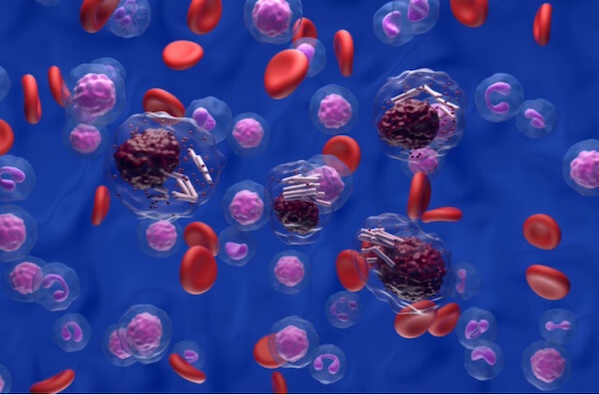Elli Lilly Cancer Drug Lands Its Second FDA Approval This Year
December 6, 2023
Source: drugdu
 555
555

Eli Lilly cancer drug Jaypirca is closing 2023 the same way it started—with an FDA approval. The latest regulatory nod adds two additional types of blood cancers to the list of indications for the therapy.
Friday’s accelerated approval for Jaypirca covers the treatment of adults with either chronic lymphocytic leukemia (CLL) or small lymphocytic lymphoma (SLL). The once-daily oral drug is a small molecule designed to block Bruton’s tyrosine kinase, or BTK, a cancer-driving enzyme. While other drugs already do this, Lilly’s molecule has an edge.
The FDA based its decision on the results of an open-label, single-arm Phase 1/2 study in blood cancers that included more than 100 patients with CLL or SLL previously treated with at least two prior lines of therapy. Participants had received a median of five prior lines of therapy; the FDA said 77% of these patients had discontinued a BTK inhibitor after their cancer did not respond to the treatment or had progressed afterward.
The FDA-approved BTK-blocking drugs for CLL and SLL are Imbruvica from partners AbbVie and Johnson & Johnson, Calquence from AstraZeneca, and BeiGene’s Brukinsa. All of them work by forming a covalent bond to the same particular location on the target enzyme. However, cancers can develop resistance to drugs that bind to BTK this way. Jaypirca stands apart from the BTK inhibitor class by forming a non-covalent, or reversible, bond with its target, binding to a distant site. This capability is intended to make Jaypirca highly selective to BTK while also extending the benefit of targeting the enzyme’s pathway in patients previously treated with a BTK inhibitor.
In its clinical trial, Jaypirca was administered once daily until the disease progressed or the drug’s toxic effects became unacceptable. The main goal was to assess overall response and the duration of response. The overall response rate was 72%; the median duration of response was 12.2 months. The most common adverse reactions reported in the study included fatigue, bruising, cough, and muscle pain. Grade 3 or 4 laboratory abnormalities reported included a decrease in a type of white blood cell called a neutrophil and reduction in platelet levels. The drug’s label warns of the risk of infections, bleeding, low levels of red blood cells, heart rhythm problems, and secondary cancers.
Jaypirca came from Loxo Oncology, which Lilly acquired in 2019 for $8 billion. The centerpiece of the deal was Loxo’s Viktrakvi, whose FDA approval covered a particular genetic signature regardless of tissue type. But Loxo had other assets in its pipeline, including its BTK-blocking molecule. Jaypirca was first approved for treating mantle cell lymphoma (MCL), a cancer of a type of white blood cell called a B cell lymphocyte. That January 2023 decision covers the treatment of patients who had previously been treated with a BTK inhibitor. FDA approvals in this indication and for SLL and CLL were based on the same Phase 1/2 study; the latest decision reviewed data from SLL and CLL patients.
The Lilly drug’s accelerated approvals are conditional nods that require the company to confirm safety and efficacy in a larger clinical trial. The Phase 3 confirmatory study is comparing Jaypirca to treatment with the physician’s choice of either Gilead Sciences’ Zydelig combined with Genentech’s Rituxin, or the older chemotherapy bendamustine in combination with Rituxin. Study participants had received treatment with at least one BTK inhibitor. Lilly said this trial has met the main goal of progression-free survival and preliminary results were shared with the FDA in November. The company said the data will be presented at an upcoming medical meeting.
“This FDA approval—the second for Jaypirca in 2023—underscores the impactful clinical benefit of continuing to leverage the BTK pathway with Jaypirca for patients with CLL or SLL as seen in the BRUIN trial,” Loxo@Lilly CEO Jacob Van Naarden said in a prepared statement. “These first two indications for Jaypirca represent the beginning of the eventual impact that we hope Jaypirca can have for patients, and we look forward to seeing the results of the comprehensive Phase 3 development program across CLL, SLL and MCL.”
Source: https://medcitynews.com/2023/12/elli-lilly-blood-cancer-drug-fda-approval-jaypirca-year/
By editorRead more on
- The first subject has been dosed in the Phase I clinical trial of Yuandong Bio’s EP-0210 monoclonal antibody injection. February 10, 2026
- Clinical trial of recombinant herpes zoster ZFA01 adjuvant vaccine (CHO cells) approved February 10, 2026
- Heyu Pharmaceuticals’ FGFR4 inhibitor ipagoglottinib has received Fast Track designation from the FDA for the treatment of advanced HCC patients with FGF19 overexpression who have been treated with ICIs and mTKIs. February 10, 2026
- Sanofi’s “Rilzabrutinib” has been recognized as a Breakthrough Therapy in the United States and an Orphan Drug in Japan, and has applied for marketing approval in China. February 10, 2026
- Domestically developed blockbuster ADC approved for new indication February 10, 2026
your submission has already been received.
OK
Subscribe
Please enter a valid Email address!
Submit
The most relevant industry news & insight will be sent to you every two weeks.



